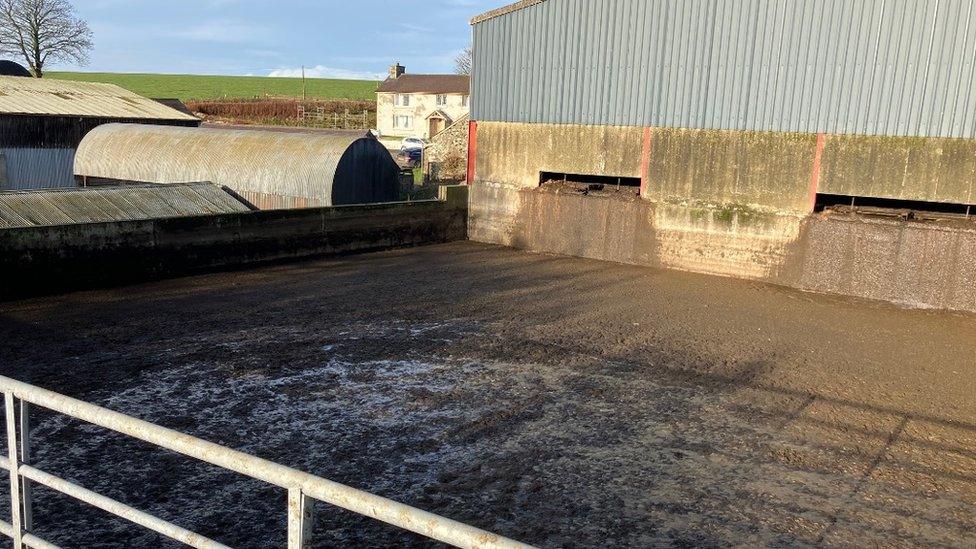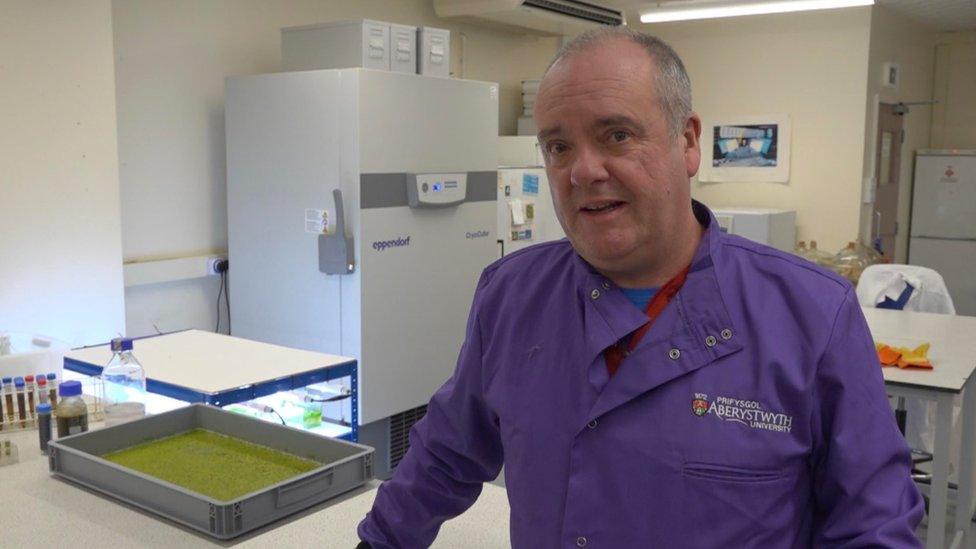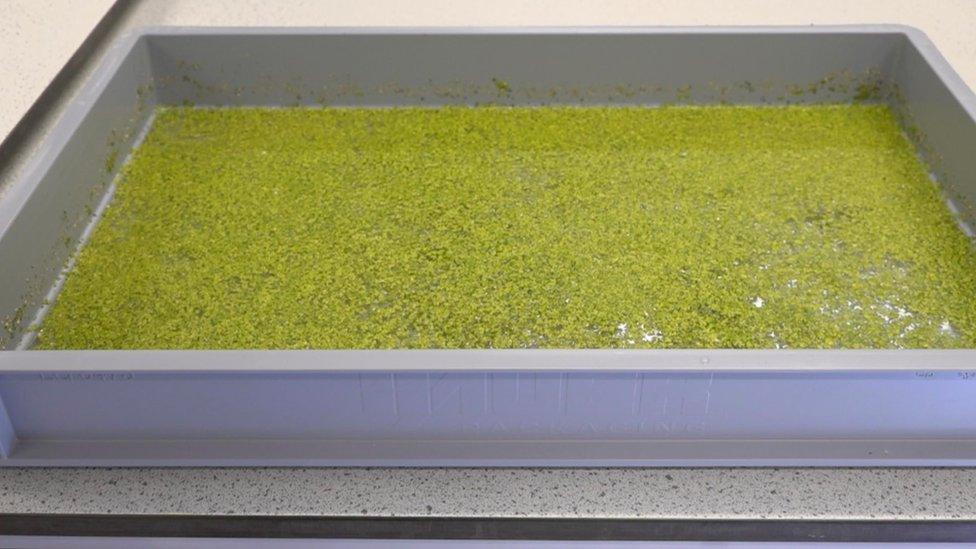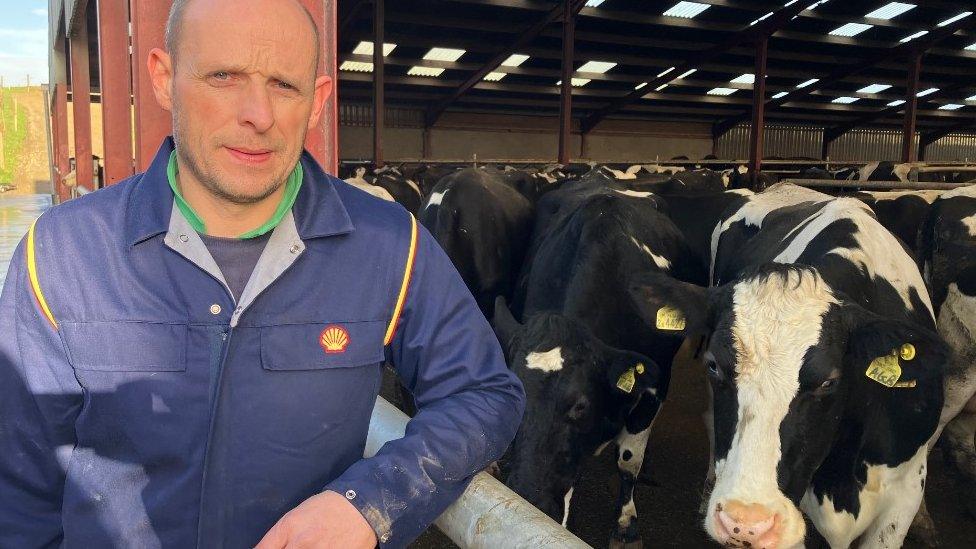Aberystwyth University: Duckweed could feed cows and save rivers
- Published

Could slurry be turned into a way of saving farmers lots of money?
Scientists are hoping duckweed and slurry could help farmers "make money from muck".
A new project hopes to provide low-cost animal feed while stopping livestock waste polluting rivers.
Duckweed, a protein-rich water plant, has been described as a "miracle plant" as it is one of the fastest growing on the planet.
There are around 500,000 dairy cows in Wales which excrete about 50kg (110 pounds) of waste each per day.
The project is a partnership between Aberystwyth University and the University College Cork in Ireland.
The storage of this slurry is costly and closely regulated as it can cause environmental damage if it enters a watercourse.
But using it to grow duckweed could solve a number of problems and be beneficial to farmers according to Dr Dylan Gwynn-Jones, who is leading the project at Aberystwyth University.

Dr Gwynn-Jones has been looking into potential uses for slurry
"Native duckweeds can make slurry a valuable resource," he said.
"They are amongst the fastest growing plants, they are tolerant of ammonium, which is found in slurry, and they produce valuable essential amino acids that make it a promising feed-stock.
"By helping the agricultural industry develop technology to produce valuable green protein from waste, the research effectively allows farmers to make money from muck."
The vision of the project is for a "win-win scenario" for the environment and farmers.
By growing duckweed on the farm, waste nitrogen and phosphates are taken out of the water, cleaning it and meaning it could potentially be safely released.

The £1m project, called Brainwaves, has been part-funded by the European Regional Development Fund
The nutrients in the waste water also lead to quicker growth of the duckweed which could be used as a protein-rich feed for livestock.
Hywel Dafis, who has 400 dairy cows on a farm in Talgarreg, near Llandysul, in Ceredigion, said farmers were always looking for sustainable sources of protein for their livestock, especially at a time of huge cost increases.
"Grass is one way but that isn't available all year round, so we need to have something during the winter, in addition to the grass, as a source of protein and this project could provide a solution," he said.
"I think there are definitely advantages for farmers."
He added: "We have to buy protein in to the farm, so to have an extra source of protein and that it comes from a plant that can also clean water, it sounds promising."

Farmers have been invited to take part in the project
Until now, the project has studied the growth of duckweed in laboratories and in tanks on land owned by the universities.
Now researchers are appealing for farmers in Wales to take part in the research on their own farms.
Dr Gwynn-Jones said: "We are very keen for farmers and the wider agriculture sector to get involved in the project.
"With expected increases in global food production, there is a pressing need for agriculture to be carbon-friendly, while protecting water quality and biodiversity."

WHAT'S KILLING OUR RIVERS?: Wyre Davies investigates what and who is to blame
BAFTA CYMRU WINNERS: Celebrate the best television from Wales

Related topics
- Published14 October 2022

- Published5 September 2022
